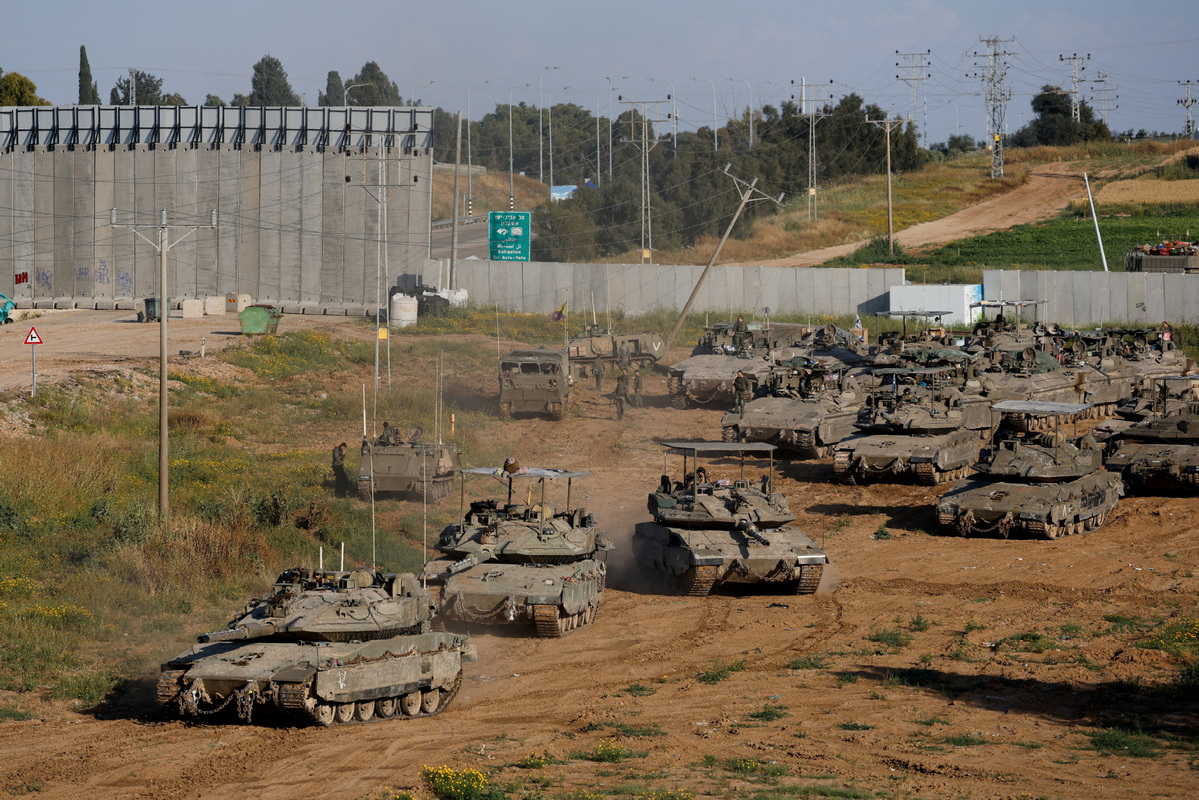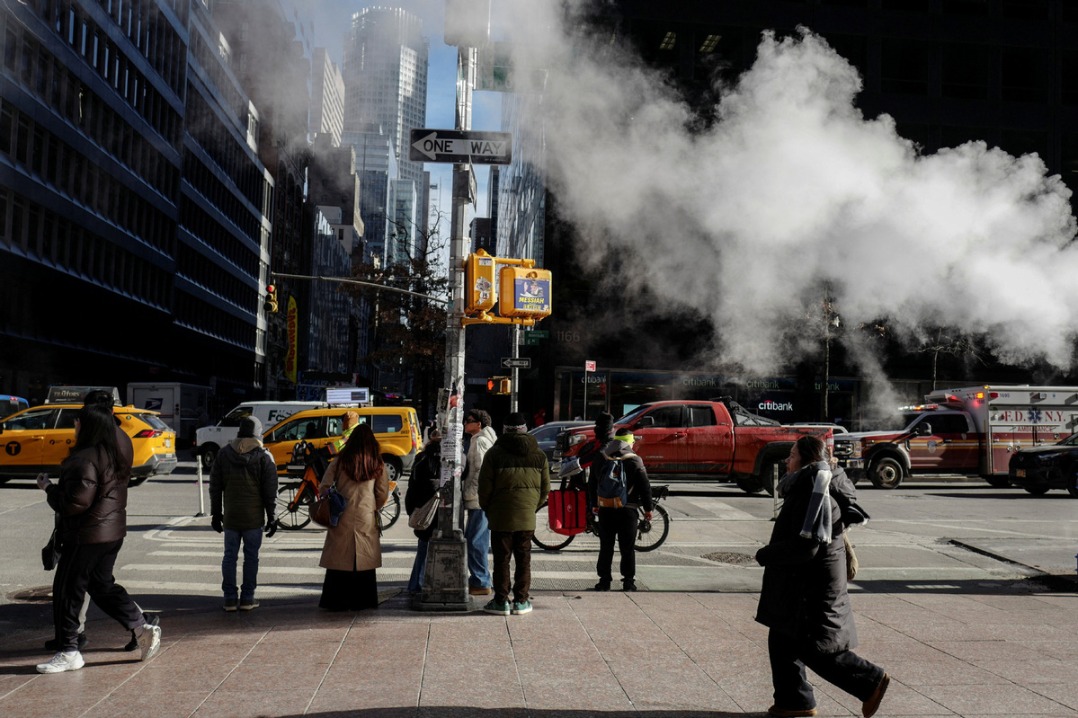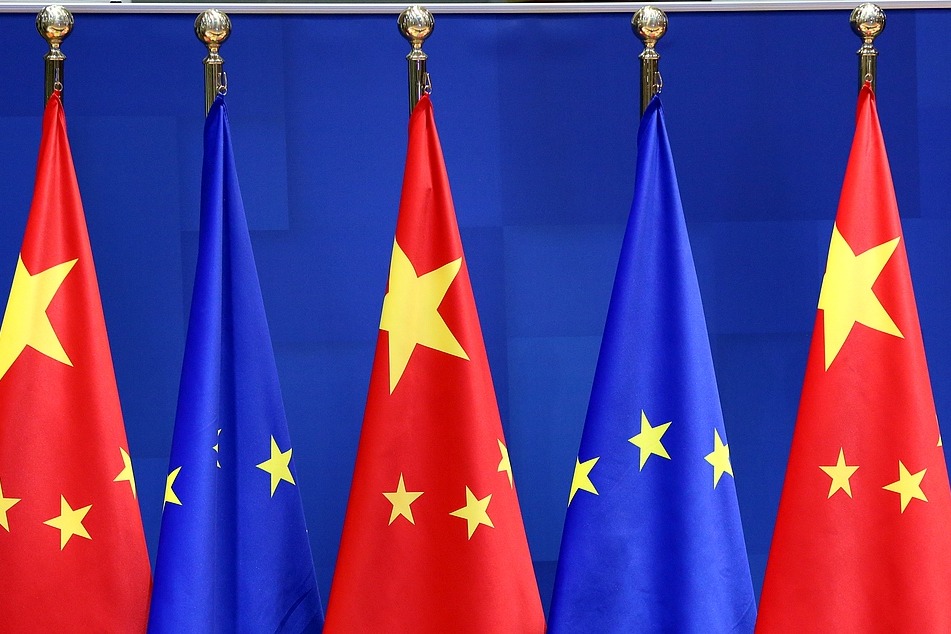Rebalanced regional order emerging in Middle East


What is happening in the Gaza Strip and the whole of Palestine is reaffirming and accelerating the rise of a new Middle East order, in which the hegemony of one country or one bloc of countries is no longer viable.
The signs of a natural progression of the regional order have been there for more than 10 years, but now they are hard to miss. The once-dominant role of the West and the United States is making way for a post-hegemony era.
As has been shown at the UN, Israel and its key patrons have become isolated, and their credibility has been tarnished. They have already strategically lost this war; they have turned most of the world against them. They have lost the global public opinion, and Israel has been taken to the International Court of Justice regarding allegations of genocide. Whatever military, territorial and political gains they may get now will be of little value compared with their strategic loss in the region and the world.
The US became dominant in the Middle East after the Cold War and the arrival of the unipolar world in the early 1990s. However, the world is now multipolar and the region is multialigned. Those two conditions are sufficient to prevent any attempt by any power to dominate the Palestine question and the future direction of the region.
Because of unconditional US support for Israel, and the US' vetoing of United Nations Security Council cease-fire resolutions four times, the US has demonstrated once again that it is not an impartial broker, but Israel's partner in the war against Palestinians.
The US' mishandling and lack of leverage over the situation in Gaza is demonstrating the end of US hegemony in the Middle East, including in the Palestinian-Israeli peace process.
The current situation is reminiscent of the 1956 Suez Crisis, after which British influence in the region declined precipitously. The US and the West had already been losing influence in the region, but their unconditional support for Israel during the current Gaza atrocities is causing a faster erosion of their standing.
The worsening perception of the US in the Arab world was highlighted in a recent survey conducted in Tunisia by research firm Arab Barometer. Before Oct 7, around 55 percent of those interviewed had an unfavorable view of the US. After Oct 7, that negative impression got even worse, at 87 percent.
It is misleading to say that the US is "leaving a vacuum" in the region. It is more accurate to say that there is a fundamental divergence of interests and worldviews between the region and the US. The region is becoming economically more integrated with Asia and the Global South.
The Middle Eastern nations are making concerted efforts to rebalance the regional order, ensuring high-level policy coordination among themselves, and deepening strategic partnerships with countries such as China, Russia and India. Furthermore, this was demonstrated through the recent Arab-Islamic summit when the Arab and Muslim leaders showed rare unity in defending Palestine against Israel and its sponsors.
Some foreign analysts misinterpret the US importance in resolving one regional issue, namely the Palestine-Israel conflict, as a sign of the US' irreplaceability in the entire Middle East — despite contrary evidence that the US role in many other regional issues such as Syria and Libya has diminished.
The US role in addressing the question of Palestine is necessary, especially in the short term, not because the US is an "indispensable" and unbiased mediator, but because the US is Israel's primary sponsor and arms supplier. Therefore, the US is, and is expected to remain, an integral part of the peace negotiation process for the time being.
Nonetheless, in the medium and long terms, if the Americans and Israelis continue to try to impose their will on the Palestinians and the Arabs without a permanent, just solution, the question of Palestine will be re-internationalized. The initial steps of this re-internationalization process have already been taken.
The Arabs are now more convinced than ever that their multialignment approach is wise and correct. They believe that no foreign power should be treated as indispensable, and that they must build indigenous capacity and cultivate diverse strategic partnerships based on their national interests.
The old paradigm about the Palestine question and regional order has been broken and a new thinking is emerging about how to guarantee stability and security in the region. The nations in the region are using their rising agency to solidify their sovereignty and cement their multialignment policy, keeping traditional partners in the West and expanding their list of friends in the Global South.
Reasonably, the Arabs are heading to peace and prosperity by working with the international community to terminate the cycle of violence and the regional order of chaos and implement the two-state solution based on international law, UN resolutions and the 2002 Arab Peace Initiative.
The author is former adviser to the chairman of the Abu Dhabi Executive Office, former head of the strategy division of Abu Dhabi National Oil Co, and an Asia global fellow at the Asia Global Institute of the University of Hong Kong.
































